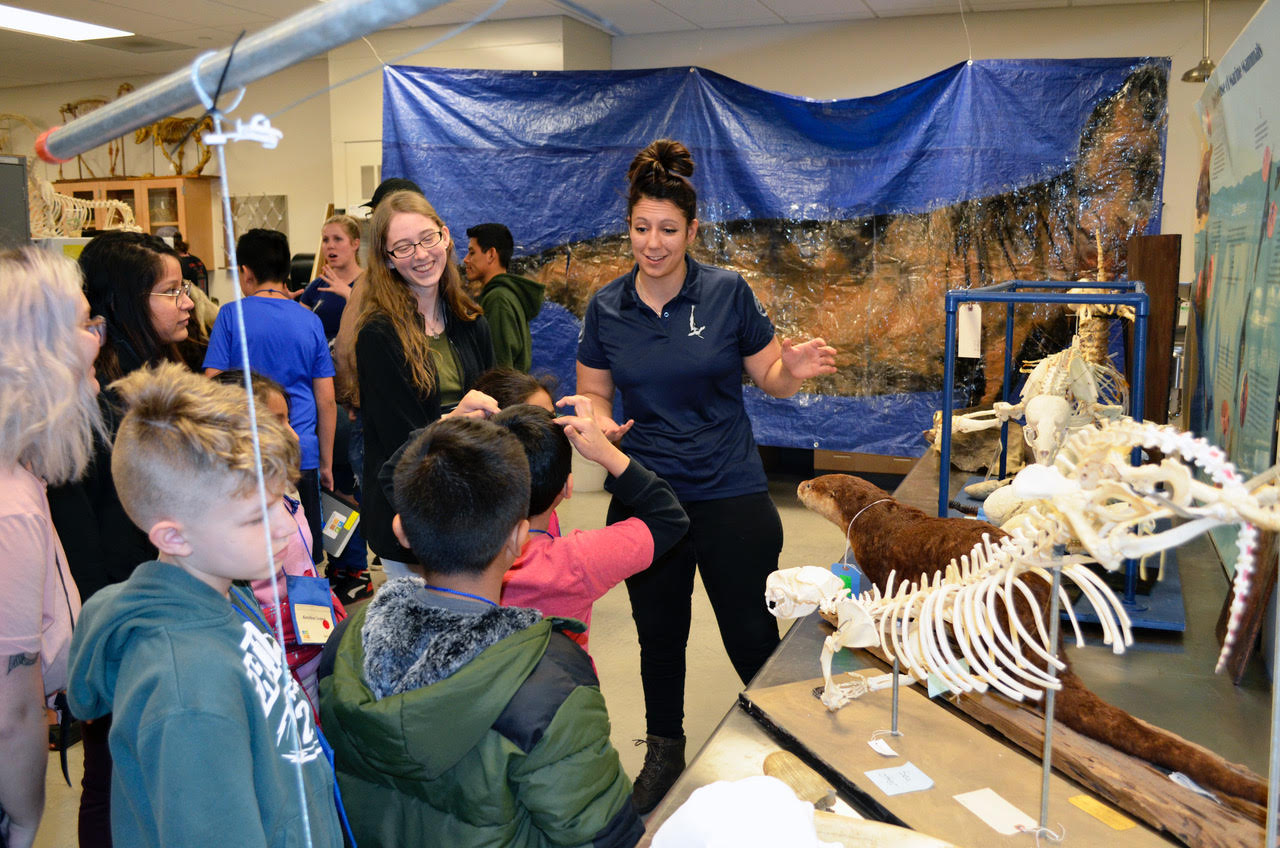
Part of the job as a scientist is to understand the impact that interacting with the public has on the general, cultural understanding of science, said Dominique Montaño, a former graduate student in the Kanatous Lab Articulation Division for Education (KLADE) in the Department of Biology at Colorado State University.
KLADE, located in the Biology Building on CSU’s campus, houses an impressive collection of taxidermy specimens and articulated skeletons that are currently used for research, and increasingly, for outreach and education.
Acting upon this scientific responsibility, Montaño, now the collaborative education designer and coordinator for KLADE, is seeking to ramp up the use of the facility and its student members to inspire the next generation of scientists. Over the past seven years, she has partnered with the Natural Sciences Education and Outreach Center to bring students from the Triunfo Mentoring Program— in partnership with El Centro —to this awe-inspiring “behind-the-scenes” lab.
“Our goal is to have a collaborative process where we learn how to effectively use these collections to teach and learn from participants of all ages and all walks of life,” said Montaño. “Participants [have] a chance to come inside the building, see a college at work, be presented to by scientists and students, and see people who looked just like them.”
Montaño sees these events as an opportunity to engage the community in interactive science education, but also to use the time to learn from the participants and attendees as well.
“While these collections may be a charismatic way of teaching with big animals, the overall goal is to learn how we can continually improve our role within the community by actually interacting with it,” she said. “These collections are just a tangible way of accessing that.”
Montaño hopes to build relationships with local schools, libraries and teachers, so that KLADE can effectively and sustainably support the community. She hopes that one day these partnerships will expand to include the whole of the biology department and can allow the lab to meet local teachers’ goals, establish community, and abide by scientists’ educational responsibility.
“If we can do right by our donors that entrust these specimens to us, the volunteers that donate their time, the specimens we utilize, and the community that we are a part of, then the future seems pretty bright,” she said.
Another one of these collaborative outreach events will be taking place on April 14.